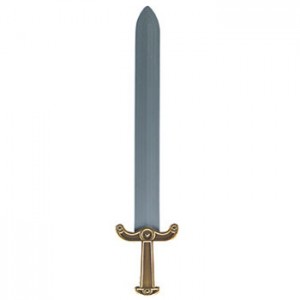Cato’s Sword February 9, 2012
Author: Beach Combing | in : Ancient , trackbackBeachcombing usually plans about two days ahead with his posts. But every so often something emerges from out of the depths of the subconscious and will just not leave him in peace. This morning it was the death of Cato the Younger that tapped like a woodpecker on his inner skull. It had already been a tough night: the Beachcombing’s aupair had taken the car out and had left the radar, leaving to fears of death and coffins back to the US. Beachcombing also made the mistake of watching a 90s noir film to detox from a day of homework marking. He got to bed about 3.00 am and then Cato appeared with his oh-too-serious face and his sharp sword. This morning Beachcombing went and dug up Plutarch 71 (?) where the terrible deed is described.
For those who don’t know the tale, the news of Caesar’s victory has come through to Cato. And the grand Republican decides, quite sensibly, that he will be better off dead than alive on the charity of that slimy old world-destroyer JC.
Then the sword was sent in, carried by a little child, and Cato took it, drew it from its sheath, and examined it. And when he saw that its point was keen and its edge still sharp, he said: ‘Now I am my own master.’ Then he laid down the sword and resumed his book, and he is said to have read it through twice [Plato’s Phaedro]. Afterwards he fell into so deep a sleep that those outside the chamber heard him. But about midnight he called two of his freedmen, Cleanthes the physician, and Butas, who was his chief agent in public matters. Butas he sent down to the sea, to find out whether all had set sail successfully, and bring him word; while to the physician he gave his hand to bandage, since it was inflamed by the blow that he had given the slave. This made everybody more cheerful, since they thought he had a mind to live. In a little while Butas came with tidings that all had set sail except Crassus, who was detained by some business or other, and he too was on the point of embarking; Butas reported also that a heavy storm and a high wind prevailed at sea. On hearing this, Cato groaned with pity for those in peril on the sea, and sent Butas down again, to find out whether anyone had been driven back by the storm and wanted any necessaries, and to report to him. And now the birds were already beginning to sing, when he fell asleep again for a little while. And when Butas came and told him that the harbours were very quiet, he ordered him to close the door, throwing himself down upon his couch as if he were going to rest there for what still remained of the night. But when Butas had gone out, Cato drew his sword from its sheath and stabbed himself below the breast. His thrust, however, was somewhat feeble, owing to the inflammation in his hand, arid so he did not at once dispatch himself, but in his death struggle fell from the couch and made a loud noise by overturning a geometrical abacus that stood near. His servants heard the noise and cried out, and his son at once ran in, together with his friends. They saw that he was smeared with blood, and that most of his bowels were protruding, but that he still had his eyes open and was alive; and they were terribly shocked. But the physician went to him and tried to replace his bowels, which remained uninjured, and to sew up the wound. Accordingly, when Cato recovered and became aware of this, he pushed the physician away, tore his bowels with his hands, rent the wound still more, and so died.
There is a literature from the end of the empire in the fifth and sixth century about the ‘last of the Romans’: which unlikely provincial fop with a gladium deserves the title of final preserver of a bronze eagle. But Beachcombing likes to think that it was the last Roman Republicans, like Cato, in the first century AD and BC who deserve the laurels, before the Empire rose Darth-Vader-like under Caesar and Augustus and chewed the Mediterranean in its terrible maw. And to those who argue that Rome would never have survived without strong men? They are almost certainly right, but that was because Rome, by then, was not worth saving.
In any case, spare a thought for Cato tearing at his own innards.
A final note and a curiosity: Cato dies reading the Phaidon, Plato’s description of the suicide of Socrates. There is a tradition that Cleombratus of Ambracia threw himself from a high wall ‘screaming farewell sun after having read a book of Plato’, presumably the Phaidon with its promise of the immortality of the soul. It is an obvious book to read before ‘self-murder’: any other examples of it cropping up in the hands of a suicide, ancient or modern? drbeachcombing AT yahoo DOT com Beachcombing feels a related post coming on about the things historical suicides did before putting the knife in or swallowing the hemlock. Personally, Beach would watch an episode of Fawlty Towers, but, as often noted in this place, there’s no accounting for taste .



